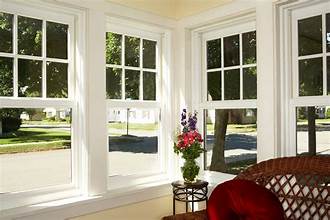When it comes to designing or renovating your home, few features are as important as your windows. They do more than just provide natural light and fresh air—they influence your home’s comfort, energy efficiency, style, and even its value. With so many types, materials, and designs available, choosing the right windows can feel overwhelming. This guide will walk you through everything you need to know to make an informed decision.
1. Understand the Role of Windows in Your Home
Before diving into design options, it’s important to understand what windows really do:
- Light & Ventilation: They control how much natural light and air enters your space.
- Energy Efficiency: Good windows reduce heat loss in winter and keep your home cool in summer.
- Aesthetic Appeal: The style and finish of windows dramatically affect the look of your home inside and out.
- Noise Reduction: Quality windows can reduce outside noise for a quieter living environment.
- Security: Modern windows offer locks and reinforced glass for added safety.
2. Different Types of Windows
Each window type has its benefits. The right choice depends on your lifestyle, climate, and personal preference.
- Casement Windows: Hinged at the side and open outward, great for ventilation and unobstructed views.
- Sliding Windows: Glide horizontally on a track, easy to use and perfect for modern spaces.
- Double-Hung Windows: Open from both top and bottom, offering flexible airflow.
- Bay or Bow Windows: Extend outward, creating more interior space and allowing maximum light.
- Fixed or Picture Windows: Do not open but provide excellent insulation and panoramic views.
- Awning Windows: Hinged at the top, they allow ventilation even during light rain.
Choosing the right style depends on where the window will be installed and how you intend to use the space.
3. Window Frame Materials
The frame material is just as important as the glass. Here are the most common options:
- Wood: Classic, elegant, and insulating, but requires regular maintenance to prevent rot.
- Vinyl: Low-maintenance, affordable, and energy-efficient, available in many colors.
- Aluminium: Strong, slim frames ideal for modern homes but less insulating than other options.
- Fiberglass: Durable, energy-efficient, and low-maintenance, though often more expensive.
- Composite: Made of wood and polymer, offering the best of both worlds—strength and insulation.
Your choice should balance durability, budget, and style preferences.
4. Glass Options for Better Performance
Modern windows come with advanced glass technology that improves comfort and efficiency:
- Double or Triple Glazing: Multiple layers of glass with gas in between for insulation.
- Low-E Glass: Reflects heat while allowing natural light to pass through.
- Tempered Glass: Stronger and safer, shattering into small pieces when broken.
- Tinted or Frosted Glass: Provides privacy and reduces glare.
Investing in the right glass can save money on energy bills and improve overall living conditions.
5. Energy Efficiency Matters
Energy-efficient windows not only keep your home comfortable year-round but also reduce utility costs. Look for:
- Energy Star Ratings: Certified products meet strict efficiency standards.
- Proper Sealing: Prevents drafts and heat transfer.
- Window Orientation: South-facing windows can maximize natural warmth in colder climates, while in hotter areas, energy-efficient glazing reduces heat gain.
6. Match Windows to Your Home’s Architecture
Your choice of windows should complement the overall style of your home:
- Modern Homes: Large sliding or fixed windows with slim aluminium frames for a clean look.
- Traditional Homes: Double-hung or bay windows in wood for classic charm.
- Cottages or Country Homes: Casement or awning windows in natural finishes for a rustic feel.
- Contemporary Designs: Floor-to-ceiling glass or custom shapes for bold statements.
The right match ensures that your windows enhance, rather than clash with, your home’s design.
7. Consider Maintenance and Longevity
Different window materials and designs require different levels of upkeep:
- Vinyl and fiberglass frames need little maintenance beyond occasional cleaning.
- Wooden frames require painting or sealing every few years.
- Easy-to-clean designs, such as tilt-and-turn or double-hung windows, are ideal for busy homeowners.
Think about how much time and effort you’re willing to invest in maintenance before deciding.
8. Budgeting for New Windows
The cost of windows varies widely depending on size, material, glazing, and custom features. While it may be tempting to go for the cheapest option, remember that good windows are a long-term investment. High-quality windows can increase your home’s value and save you money through lower energy bills.
To manage costs:
- Prioritize rooms where efficiency matters most, such as living rooms or bedrooms.
- Compare quotes from different suppliers and installers.
- Consider a phased replacement if upgrading all windows at once isn’t feasible.
9. Professional Installation Is Key
Even the best windows won’t perform well if they’re poorly installed. Hiring professionals ensures proper sealing, alignment, and finishing. Look for reputable installers with good reviews and warranties on both the product and installation.
Conclusion
Choosing the right windows for your home is a decision that impacts your comfort, style, and energy bills for years to come. From selecting the right type and material to ensuring energy efficiency and professional installation, every step matters. By carefully considering your home’s design, climate, and budget, you can invest in windows that not only look beautiful but also make your living space more comfortable and sustainable. Contact Us
Good windows are more than just panes of glass—they are your home’s connection to the outside world, balancing light, air, security, and beauty in perfect harmony.






